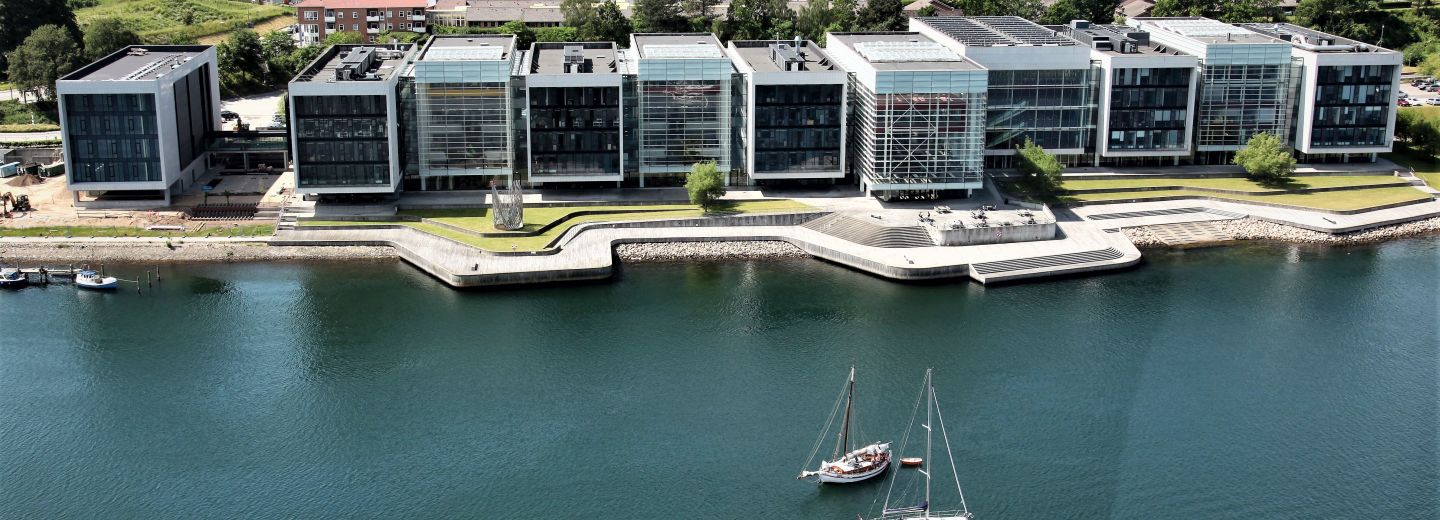
Villum Experiment: Million grants for researchers from the Mads Clausen Institute
The Experiment programme aims to find answers to the big, the small and the really quirky research questions. On the list of the technical and scientific research projects that receive this year's Experiment grants, you will find three researchers from the Mads Clausen Institute, who will now have the opportunity to realise their creative ideas within the interaction of light with advanced materials.
“The focal point of the Experiment Programme is to give researchers the opportunity to work with the research ideas they themselves are most interested in. These may be projects that challenge recognised research, and which do not tick the traditional boxes for research funding.
In the programme, we take a new assessment approach in the form of an anonymised selection process and provide high-risk funding for researchers to test new and unconventional ideas. Perhaps there are important breakthroughs waiting to be discovered at the end of what we previously thought was a dead end,” says Thomas Bjørnholm, Executive Chief Scientific Officer, VILLUM FONDEN.
During the selection process, the applicants were anonymised for the assessment panel. The 21 international assessors have thus not had the opportunity to peek at the applicants’ CVs and academic credentials and have therefore judged the research ideas solely on the basis of whether they challenge the norm and have the potential to change the world and our knowledge of it.
Photonic, laser and dynamic metasurfaces
VILLUM FONDEN received a total of 305 applications from researchers representing as many as 46 different nationalities. The 51 selected projects are wide-ranging in scope. What they have in common is that they challenge established views within their field of research and that they have the potential to fundamentally change the way we approach important topics.
Among the recipients of this year's grants are three researchers from the Mads Clausen Institute at the Faculty of Technology at SDU, Associate Professor Till Leissner and Chao Meng. They receive two million each for research within photonics, laser light and material surfaces. The three projects are located in three centres, NanoSYD, Nanooptics and CAPE, at the Mads Clausen Institute, which has independent research and development focus areas but frequently exchanges knowledge and skills.
'I am very grateful that we have such ambitious researchers and even more grateful that the Villum Foundation honours their efforts in developing and supporting innovative ideas. This helps us find high-tech solutions to the world's global challenges,' says Horst- Günter Rubahn, professor and head of the Mads Clausen Institute.
'The Villum Experiment grants are crucial for researchers in connection with realising their creative ideas within the interaction of light with advanced materials.'
Focus
The Villum Experiment Programme has been created for research projects in technical and natural sciences that challenge the norm and have the potential fundamentally to change the way we approach important subjects. The applicants are anonymous to the international assessors to increase the focus on the research ideas and to let the researchers think freely.
The grant is of DKK 1-2m and runs for up to two years. The programme is announced annually in open competition with the application deadline in March.
The programme was launched in 2017, and since its inception, 298 grants have been awarded. To assess whether the programme lives up to its founding objectives, the foundation has initiated an evaluation of the programme. The Danish Center for Studies in Research and Research Policy (CFA) at Aarhus University, which is responsible for the evaluation, expects to be able to publish the results in 2024.
Read more about the Villum Experiment Programme.
The assessment process
The overall success rate for applicants for this year’s Experiment is 17%. The applications have been assessed by an assessment panel consisting of 21 international external experts divided into four sub-panels: ‘Earth & Space’, ‘Life Science’, ‘Physical Science & Math’ and ‘IT & Engineering’.
Applications are judged on their originality, potential impact, and how they fit into the programme’s intent to promote unconventional ideas.
Each external expert has also had the opportunity to allocate a so-called ‘trump’ to an application to give this application precedence. This is done to challenge the traditional consensus-based selection procedures. See review sheet (PDF).
The 305 applications came from 76 female applicants and 229 male applicants and the overall success rate for applicants is 17% (13% for women and 18% for men).